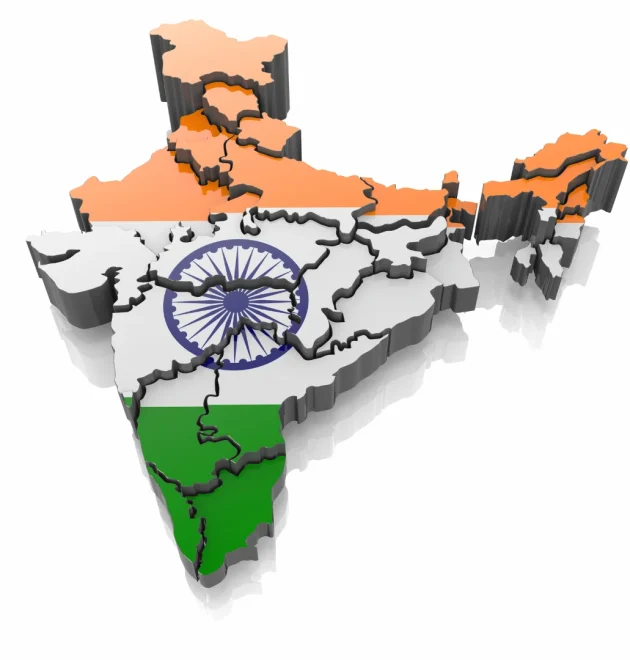ISO Certification in India - Unlock Business Growth & Win Global Contracts
You know what frustrates me most about running a business in India? Just when you think you’ve got everything figured out, someone comes along asking for certifications you’ve never heard of. Three months ago, I was talking to Rajesh, who runs a mid-sized engineering firm in Pune. He lost a ₹2 crore contract because his competitor had something called ISO Certification in India, and he didn’t even know what that meant.
It got me thinking about how many business owners are in the same boat. We’re all hustling, trying to make our companies work, but sometimes we miss the things that could actually make us money instead of just keeping us busy. That’s why I decided to write this guide – because after helping hundreds of businesses get certified over the past decade, I’ve learned that ISO Certification India isn’t just another paperwork nightmare. It’s actually the difference between businesses that struggle and businesses that thrive.
Here’s something that might blow your mind: companies with best ISO Consultants in India helping them get certified are landing 25-40% more export deals than their competitors. This isn’t because the ISO Certificate is some magical business charm. It’s because international buyers need proof that you can deliver what you promise, every single time, without excuses.

What is ISO Certification, Really?
Okay, so you’ve heard the term “ISO Certification” a thousand times. You see it on websites, business cards, and even in government tender documents. But what is it, truly?
Let’s cut through the jargon. At its core, ISO certification is a globally recognized seal of approval for your business. It’s a stamp of trust. It’s not a secret code or a magical business charm—it’s formal, verifiable proof that your company has a solid, well-documented system for doing what it does.
Think of it this way: The ISO is an International Organization for Standards for just about everything, from the dimensions of a credit card to how a hospital manages its patient data. When they certify your business, they’re basically saying, “Yes, we’ve checked. This company has a reliable system in place to consistently deliver quality, to manage its environmental impact, to keep its employees safe, or to protect its data.”
For a business owner in India, this is so much more than a certificate on the wall. It’s a universal language of credibility. It tells a potential client in Germany, a major corporation in Mumbai, or a government official in Delhi, “You don’t need to guess. We’ve proven we have our act together.” This simple verification can turn a casual inquiry into a serious business conversation and, ultimately, a signed contract you might have otherwise lost.
Why Every Smart Business Owner in India Should Pay Attention
The Door That Opens Everything Else
- Let me tell you about Priya, who runs a textile business in Chennai. Brilliant woman, incredible products, dedicated team working their hearts out. But she kept losing export orders to competitors who weren’t even producing better fabric than her. The difference? Those competitors had ISO 9001 certification India, and ISO Consultants helped them prove their quality systems to European buyers who wouldn’t even consider non-certified suppliers.
- Here’s the thing nobody tells you: international buyers don’t have time to figure out if you’re good at what you do. They need shortcuts to trust, and ISO certification is the biggest shortcut there is. When Priya finally got certified, she didn’t just get back into the game – she started winning contracts she never thought possible.
- The American and European markets are brutal about this stuff. They’ve been burned too many times by suppliers who promised the world but couldn’t deliver consistently. So now they just stick to certified suppliers, and honestly, can you blame them?
The Government Actually Likes You When You’re Certified
- Here’s something that absolutely floored me when I discovered it: The Indian government actually loves ISO certified companies. I’m talking about real, tangible benefits – priority consideration in government tenders, smoother access to export financing, fast-track approvals for various schemes, and even preferential treatment from ISO registrar bodies when you need quick turnarounds.
- Why? Because ISO certification in India means you follow systems, keep proper records, and rarely create problems for regulators. Government officials have figured out that dealing with certified companies is just easier. Less paperwork, fewer compliance issues, more predictable outcomes.
- I’ve seen companies get government contracts they had no business winning, simply because their ISO certification put them in a different category than their competitors.
Your Business Will Actually Start Making Sense
- Before ISO, most businesses run on what I call “organized chaos.” Everyone sort of knows what they’re supposed to do, but when something goes wrong, it’s finger-pointing time. Sound familiar?
- Last year, I worked with a pharmaceutical company in Mumbai that was hemorrhaging money on rework and customer complaints. Six months after implementing ISO systems, their defect rates dropped by 60% and their costs came down by almost 20%. Not because we did magic, but because we helped them organize what they were already doing.
- The beautiful thing about ISO is that it forces you to document the things that work and fix the things that don’t. Most companies see 15-30% cost reduction just from eliminating waste and confusion.
Request A Free Quote
Types of ISO Certification in India
- ISO 9001 Certification In India
- ISO 14001 Certification In India
- ISO 45001 Certification In India
- ISO 27001 Certification In India
- ISO 22000 Certification In India
- ISO 17025 Certification In India
- ISO 13485 Certification In India
- ISO 20000-1 Certification In India
- ISO 18001 Certification In India
- ISO 50001 Certification In India
- ISO 22301 Certification In India
Other Certification In India
- BIFMA Certification
- HACCP Certification
- CE Mark Certification
- HALAL Certification
- ROHS Certification
- GMP Certification
Cities Where ISO Certification Can Make You Rich
Mumbai – The City Where Quality Never Sleeps
Mumbai is absolutely relentless. Over 40,000 manufacturing units crammed into this incredible city, and the ones making real money all have one thing in common – they treat ISO certification process like their business lifeline. Walk through any pharmaceutical corridor here, and you’ll understand why companies like Cipla and Dr. Reddy’s guard their ISO certificate credentials like state secrets.
I remember visiting a chemical plant in Andheri that had just survived a surprise regulatory inspection. The plant manager grabbed my arm and said, “Thank God for our ISO audit system and proper documentation. Without ISO standard procedures, they would have shut us down on the spot.” That’s Mumbai for you – the stakes are sky-high, but the rewards match the intensity.
If you’re doing business in Mumbai, you need certification for:
- Pharmaceuticals (because one mistake can kill people and your business)
- Chemical processing (environmental compliance isn’t optional anymore)
- Textiles (export buyers won’t even talk to you without it)
- Diamond and jewelry (international markets are certification-obsessed)
- Financial services (regulatory pressure is increasing every year)
Bengaluru – Where Data Security Nightmares Become Success Stories
Bengaluru has this beautiful problem that most cities would kill for – too many successful IT companies to count. Over 4,000 of them, competing for the same global clients. But with great opportunity comes great paranoia, especially about data security. ISO certification India standards like ISO 27001 have become the golden ticket to serious business here.
Let me tell you about Arjun, a startup founder I met last year. He lost a ₹50 lakh contract because he couldn’t prove his data security measures to a paranoid American client. Meanwhile, his competitor with proper ISO registration and ISO certification services backing signed that same deal within a week. That’s a brutal but expensive lesson about being prepared in today’s digital world.
The aerospace sector here is equally demanding. When you’re building components for space missions or global aircraft, quality isn’t negotiable. These companies need multiple certifications, and they pay well for suppliers who can meet their standards.
Bengaluru businesses that absolutely need certification:
- Software companies (ISO 27001 and 20000 aren’t optional if you want serious clients)
- Aerospace and defense (quality standards here are unforgiving)
- Biotechnology (regulatory compliance is getting stricter every year)
- Engineering services (global clients expect certified quality systems)
Chennai – India’s Detroit, But With Better Food
Chennai’s automotive industry doesn’t mess around. When global giants like Hyundai and BMW set up shop here, they brought their quality expectations with them. Local suppliers learned quickly that ISO 45001 ISO certification India wasn’t just paperwork – it was survival.
I’ve worked with auto parts suppliers here who transformed their operations after getting safety certified. Not only did their accident rates drop dramatically, but their insurance costs went down and their employees started actually enjoying coming to work. Turns out, people prefer working in places where they don’t worry about getting hurt.
Chennai’s certification must-haves:
- Automotive quality management (without ISO/TS 16949, you’re not even in the game)
- Occupational health and safety (accidents are expensive in every possible way)
- Environmental management (communities and regulators are watching closely)
- Energy management (rising costs are killing profit margins)
Pune – Where Engineering Meets Common Sense
Pune has this unique vibe where traditional manufacturing meets modern services. Companies like Bajaj and Mahindra have created an ecosystem where quality isn’t just expected – it’s assumed. Business owners here understand that hiring ISO certification consultants in India isn’t an expense, it’s an investment in their future.
The IT sector here serves global clients who demand service quality that matches international standards. At the same time, the manufacturing sector needs to meet automotive standards that rival anything in Germany or Japan. It’s challenging, but the money is good if you can deliver.
What Pune businesses need most:
- Automotive manufacturing standards (global quality expectations don’t negotiate)
- IT service management (clients expect world-class service delivery)
- Engineering service quality (precision and reliability are non-negotiable)
- Energy management (manufacturing costs are driving efficiency focus)
Ahmedabad – Where Chemistry Meets Business Sense
Gujarat’s commercial capital is serious about chemicals and pharmaceuticals. The regulatory environment here is strict because it has to be – chemical processing involves real risks. Companies that don’t take safety and environmental management seriously don’t last long.
I worked with a chemical company here that was spending more on regulatory fines than on employee salaries. After implementing ISO 14001 and ISO 45001, they not only eliminated the fines but discovered cost savings they never knew existed. Waste reduction and energy efficiency can add up to serious money.
Ahmedabad’s critical certification needs:
- Food safety management (the food processing sector here is booming)
- Medical device standards (pharmaceutical companies need quality systems)
- Environmental compliance (the chemical industry faces constant scrutiny)
- Industrial safety (accidents are expensive and completely avoidable)
What Each ISO Standard Actually Does for Your Business
ISO 9001 – The Foundation That Changes Everything
ISO 9001 certification India is like learning to drive – once you have it, you wonder how you ever managed without it. This isn’t about creating more forms to fill out; it’s about creating systems that work consistently, even when your star employee calls in sick.
I remember working with a textile manufacturer in Coimbatore who was losing customers because their quality was unpredictable. Some batches were perfect, others were disasters. After implementing ISO 9001, they documented every process, trained every worker properly, and created systems for catching problems before customers ever saw them. Within six months, customer complaints dropped by 80%.
The certification process usually takes 6-12 months, but here’s what’s interesting – companies that commit to it properly start seeing improvements within the first few months.
What ISO 9001 actually delivers:
- Your customers stop complaining because quality becomes predictable
- Your team knows exactly what to do in every situation
- Your suppliers improve because you have clear requirements
- Your costs drop because you eliminate waste and rework
- New customers trust you because you can prove your capabilities
ISO 14001 – Environmental Management That Actually Saves Money
Here’s something most people don’t realize about ISO 14001 certification India – it’s not just about being environmentally friendly, it’s about being financially smart. When you systematically reduce waste and optimize resource use, your costs go down.
A chemical company in Vadodara implemented ISO 14001 and discovered they were wasting 30% of their raw materials through inefficient processes. The certification forced them to measure everything carefully, and they found savings worth ₹2 crores annually. That’s real money, not feel-good environmentalism.
Why ISO 14001 makes business sense:
- Regulatory compliance becomes automatic instead of stressful
- Waste reduction directly improves your profit margins
- Customers increasingly prefer environmentally responsible suppliers
- Your employees take pride in working for a responsible company
- Local communities support your operations instead of opposing them
ISO 45001 – Safety Management That Protects Everything
Workplace accidents are expensive in ways most people don’t think about. Medical costs, insurance claims, productivity losses, reputation damage – a single serious accident can cost you lakhs or even crores. ISO 45001 ISO certification India isn’t just about compliance; it’s about creating workplaces where accidents simply don’t happen.
I worked with a steel company in Jamshedpur that reduced their accident rate by 75% after implementing ISO 45001. Their insurance premiums dropped, employee morale improved dramatically, and productivity increased because workers felt safe and valued.
Why ISO 45001 is a smart investment:
- Accident rates drop when you follow systematic safety practices
- Insurance companies reward certified companies with lower premiums
- Employees stay longer and work harder when they feel protected
- Regulators leave you alone when you have good safety records
- Customers trust suppliers who take care of their workers
ISO 27001 – Information Security in a Connected World
Data breaches destroy businesses. Not just through immediate costs, but through lost trust that never fully recovers. ISO 27001 certification India has become essential for any business handling digital information – which means practically every business today.
Bangalore’s IT companies learned this lesson the hard way. Those with proper information security management systems kept winning contracts, while those without lost clients to competitors who could prove their security measures. It’s not just about having good technology; it’s about having systematic approaches to risk management.
What ISO 27001 actually protects:
- Your customer data and business information
- Your reputation and customer relationships
- Your compliance with privacy regulations
- Your competitive advantages and trade secrets
- Your ability to keep operating when threats emerge
Industry - Specific Certifications That Open New Worlds
Food Industry – Safety Standards That Build Empires
India’s food industry is worth over ₹50 lakh crores, but consumer trust is fragile. One contamination incident can destroy brands built over decades. ISO 22000 certification for food safety in India provides systematic protection against the kinds of problems that make headlines for all the wrong reasons.
Food companies with proper certification access markets that non-certified competitors can’t even dream of entering. Export opportunities, premium retail chains, institutional customers – they all prefer suppliers who can prove their safety systems work.
How ISO 22000 transforms food businesses:
- Export markets become accessible with credible safety systems
- Major retail chains prefer certified suppliers for reputation protection
- Contamination risks drop dramatically with systematic controls
- Consumer trust increases when they see proper credentials
- Regulatory inspections become routine rather than terrifying
Healthcare – Medical Device Standards That Save Lives and Businesses
India’s medical device industry is exploding, but international markets demand proof of quality systems. ISO 13485 medical device certification India ensures that every device meets safety and effectiveness requirements from initial design through final distribution.
Medical device manufacturers without proper certification can’t access international markets, can’t supply to major hospitals, and face constant regulatory scrutiny. Certification opens doors and builds trust with healthcare providers who literally bet lives on your products.
Energy Management – Cost Savings Through Smart Systems
Rising energy costs are destroying profit margins across industries. ISO 50001 energy management certification India helps companies systematically reduce energy consumption while maintaining or improving productivity. It’s an environmental responsibility that pays for itself.
Companies typically see 10-25% energy cost reductions within the first year of implementation. In energy-intensive industries like steel, chemicals, and textiles, these savings can be substantial enough to change competitive positioning.
ISO Standards for Major Indian Industries
| Industry / Business | Applicable ISO Standards |
|---|---|
| Manufacturing | ISO 9001 (Quality), ISO 14001 (Environment), ISO 45001 (Occupational Health & Safety) |
| IT & Software | ISO 27001 (Information Security), ISO 20000 (IT Service Management), ISO 9001 (Quality) |
| Healthcare & Pharma | ISO 13485 (Medical Devices), ISO 9001 (Quality), ISO 14001 (Environment) |
| Food & Agriculture | ISO 22000 (Food Safety), ISO 9001 (Quality), ISO 14001 (Environment) |
| Construction & Real Estate | ISO 45001 (Occupational Health & Safety), ISO 14001 (Environment), ISO 9001 (Quality) |
| Education & Training | ISO 21001 (Educational Organizations), ISO 9001 (Quality) |
| Oil, Gas & Energy | ISO 50001 (Energy Management), ISO 14001 (Environment), ISO 45001 (Safety) |
| Banking & Finance | ISO 27001 (Information Security), ISO 22301 (Business Continuity) |
| Retail & E-commerce | ISO 9001 (Quality), ISO 27001 (Information Security) |
The Real Numbers - What You'll Actually Spend and What You'll Get Back
The Real Cost of Certification
Let’s talk about what certification really costs. Forget the theoretical estimates; here’s what companies actually spend. The investment for ISO implementation in India varies, but you’ll need to set a budget based on your company’s size.
Small Companies (50-100 employees)
You’re looking at a total investment for the complete process. This covers consultant fees, certification body charges, and internal costs like training and documentation. While it might seem like a lot upfront, most companies recover this investment within 12 to 18 months through operational improvements alone.
Medium Companies (100-500 employees)
You should budget for the complete process. Consultant fees, certification costs, and internal resources are all part of the investment. Medium-sized companies often see faster returns because they have more opportunities for process improvement and cost savings.
Large Companies (500+ employees)
Expect to invest in a comprehensive implementation. While the initial investment might seem scary, large companies typically recover it within 12 months through efficiency gains, waste reduction, and new business opportunities.
How to Get ISO Certified in India Without Going Broke
The secret to controlling costs is preparation and choosing the right approach. Here’s what successful companies do:
Get Your Act Together
Assess current systems honestly before hiring consultants. Teams that prep first typically cut guidance needs and reduce external effort by focusing on true gaps.
Build Systems That Actually Work
Document processes, train people, and design workflows that improve daily operations. Avoid shelf-ware—systems must simplify work and create consistent outcomes.
Test in Real Conditions
Run internal audits, fix non-conformities, and stress-test processes. Skipping this phase is the #1 reason for audit failure and costly rework.
Get Certified & Celebrate
Select the right certification body, prepare for Stage 1 & Stage 2 audits, and secure your certificate. Remember: certification is the start of continual improvement.
Tip: Document → Train → Audit → Improve — keep that loop alive Post-Certification.
Return on Investment - The Numbers That Matter
Most companies see payback within 12-24 months, but smart ones track specific benefits:
- Operational cost reduction: 15-30% through waste elimination and process improvement
- Revenue increase: 10-25% through new market access and enhanced customer confidence
- Insurance savings: 10-20% for safety and environmental certifications
- Employee productivity: 5-15% improvement through better systems and clearer expectations
Getting the Right Help - ISO Training and Certification in India
Training That Actually Trains People
ISO training and certification in India has become a huge business, but quality varies dramatically. The best programs combine technical knowledge with practical experience, giving participants skills they can actually use in real situations.
Lead Auditor Programs Worth Your Investment:
- ISO 9001 Lead Auditor (40 hours of intensive, practical training)
- ISO 14001 Lead Auditor (environmental management with real case studies)
- ISO 45001 Lead Auditor (safety management with hands-on exercises)
- ISO 27001 Lead Auditor (information security with current threat scenarios)
Look for training providers who use real case studies from actual implementations, provide hands-on exercises that mirror real work situations, and offer post-training support when you need help applying what you learned.
Internal Auditor Training That Creates Capable Teams: Your internal team needs practical skills to maintain and improve your systems over time. Good training programs teach auditing techniques that actually work, problem-solving methods that get results, and continuous improvement approaches that keep your certification valuable long-term.
Finding ISO Certification Consultants in India Who Actually Help
The consulting market is crowded with people who talk a good game but can’t deliver results. Here’s how to separate the professionals from the pretenders:
- Look for Technical Expertise That Matches Your Industry: Generic consultants might know ISO standards in theory, but industry-specific experience makes all the difference in practice. A consultant who understands pharmaceutical regulations, automotive supply chains, or IT security challenges will save you time, money, and headaches.
- Evaluate Their Implementation Approach: Good consultants don’t just help you get a certificate on the wall – they help you build better businesses. They should focus on practical improvements that benefit your daily operations, not just paperwork that satisfies auditors during annual visits.
- Insist on Real Post-Certification Support: Certification requires ongoing maintenance, not just one-time implementation. Choose consultants who provide surveillance audit preparation, continuous improvement guidance, system updates when standards change, and emergency support when problems arise.
Red Flags That Should Make You Run
- Unrealistic Promises: Anyone who guarantees certification outcomes or promises extremely short implementation timelines is probably cutting corners that will hurt you later. Good implementation takes time and genuine commitment from your organization.
- Hidden Costs and Surprise Charges: Professional consultants provide clear, detailed proposals with transparent pricing. Be very wary of low initial quotes that suddenly balloon with “additional services” during implementation.
- One-Size-Fits-All Cookie-Cutter Approaches: Your business is unique, with its own challenges and opportunities. Consultants who use identical approaches for every client aren’t providing real value – they’re just going through motions.
Future of ISO Certification in India - Technology, Sustainability, and Government Support
The Future of Business Excellence in India
The business world is changing faster than ever, and ISO standards are evolving to keep pace. Digital transformation, sustainability requirements, and changing customer expectations are creating new challenges and opportunities for certified companies.
- Technology Integration That Actually Works: Modern businesses are integrating IoT sensors, AI analytics, and blockchain technology into their quality and safety systems. ISO certification is adapting to include these digital tools while maintaining focus on systematic management that delivers real results.
- Sustainability Requirements That Drive Profits: Environmental and social responsibility aren’t just nice-to-have anymore – they’re business requirements that affect your bottom line. ISO 14001 is becoming more demanding, and new standards are emerging for carbon management and social responsibility.
- Industry-Specific Evolution: Healthcare, renewable energy, e-commerce, and agriculture are developing specialized requirements that go beyond traditional ISO standards. Companies in these sectors need consultants who understand both ISO fundamentals and industry-specific challenges.
Government Support That Actually Supports
The Indian government has realized that ISO-certified companies contribute more to economic growth, export success, and job creation. Policy support is increasing through programs that actually help:
- Production Linked Incentive (PLI) schemes that favor certified manufacturers
- Export promotion programs that prioritize companies with proper certifications
- MSME development initiatives that subsidize certification costs for small businesses
- Skill development programs that train ISO professionals for growing demand
The Decision That Changes Everything
ISO Certification in India isn’t just about meeting requirements or impressing customers – it’s about building businesses that thrive in competitive markets, attract the best opportunities, and create real value for everyone involved.
If you’re still wondering whether certification is worth the investment, think about this: your smartest competitors are probably already certified or working toward it. The question isn’t whether you can afford to get certified – it’s whether you can afford to keep falling behind.
Whether you need ISO 9001 certification India for quality management, ISO 27001 certification India for information security, or ISO 22000 certification for food safety in India, the investment in professional implementation delivers measurable returns through improved operations, reduced costs, and enhanced market access.
The companies that succeed in modern India aren’t just good at what they do – they can prove it through internationally recognized standards. ISO certification transforms good businesses into great ones, and great businesses into market leaders that competitors struggle to match.
Start with an honest assessment of where your business stands today, choose experienced ISO certification consultants in India who understand your specific industry challenges, and commit to building systems that actually improve your operations instead of just creating paperwork.
The certificate on your wall looks nice, but the systematic improvements in your daily operations are what create lasting competitive advantage that grows your business year after year. Your journey toward real business excellence starts with a single decision to stop settling for good enough.
Make that decision today, and watch your business transform into something your competitors can only dream of becoming.
Your Partner in Excellence - Maxicert's Global Expertise, Now in India
Benefits of ISO Certification for Indian businesses include greater credibility, meet compliance for government requirements, have better exports, stronger customer trust, and streamline your business for greater efficiency and lower risk.
Achieving ISO certification is a vital milestone for any organization and it’s important to select the right consultant. Maxicert, an ISO Consultant with a global reputation, is so proud to be bringing our world class service to help businesses in India strive for operational excellence and global recognition.
After establishing a successful track record across the Middle East, we have expanded our offering in cities across India where we see an emerging demand for ISO Certification in Bengaluru, ISO Certification in Chennai and ISO Certification in Pune to support local companies. Our teams have also been providing complete support to businesses seeking ISO Certification in Ahmedabad and ISO Certification in Mysore.
While we know you have a lot of questions about the costs of ISO certification, please trust us when we say we will try to make your investment as minimal and equitable as possible. With our consultant, you will have an end-to-end service that will take your business from a consultation session, to connecting you with ISO auditors and training providers.
Maxicert is the partner you can choose with confidence, as you seek ISO Certification in India. Please contact us today, so we can demonstrate how we can support your business first by being compliant, and the second by ensuring you stay ahead of your competitors.
Conclusion
In a competitive landscape like India, ISO Certification symbolizes credibility, growth, and global recognition. Across industries, from Manufacturing to IT, Healthcare, Food, Education, or Construction, there are measurable benefits to implementing ISO standards including processes, risk management, and customer confidence.
With ISO Certification, your business can elevate its position in the market, be awarded government contracts, enter an international market, and ensure long-term sustainability.
Do not let your competitive advantage drift away! Are you ready to get ISO Certified in India, and gain credibility?
Partner with Maxicert: India’s trusted ISO Consultants , for fast , affordable , easy certification.
Contact us today to start your certification process, and put your company on the path to being best in class in quality and compliance.
FAQ
What is ISO Certification and why is it important for Indian businesses?
ISO Certification is internationally recognized standards for your business and helps to ensure quality, safety and efficiency practices. ISO certification is one of the most essential credentials in India as it will help a business to gain trust, obtain government tenders, increase export, and get more customers.
How do I obtain ISO Certification in India?
To obtain an ISO Certification in India, you will need to choose the right standard, prepare the relevant documents, implement processes, undertake an audit of your business, then you will receive a certificate. However, the process is made simple when using suitably experienced and trained ISO consultants.
What ISO Standard is the most common in India?
The most common ISO Certifications in India and the world are ISO 9001 (Quality Management), ISO 14001 (Environmental Management), ISO 27001 (Information Security), ISO 45001 (Occupational Health & Safety Management), and ISO 22000 (Food Safety Management).
What are the benefits of ISO Certification for Indian Businesses?
Benefits of ISO Certification for Indian businesses include greater credibility, meet compliance for government requirements, have better exports, stronger customer trust, and streamline your business for greater efficiency and lower risk.
Client Testimonials
What Our Clients Say About Us?
We are trusted by thousands of clients belonging from technology, manufacturing, healthcare and various sectors








Our overall experience with Maxicert was satisfied. The audit and consulting part was handled carefully, we fulfilled our client requirement of ISO 27001 hassle free.
Kevin Santiago BDM – Clarks Outsourcing, PhilippinesTimely response and knowledge of ISO standards can be seen together in the team of Maxicert, we grow because of the service providers like Maxicert.
Samuel Christopher Quality Assurance Head – OEQA, NigeriaWe did Food safety certification with Maxicert, the service was extraordinary and their consultant had good experience of the subject.
Mr. Venkatesh Production Manager - Acacia Foods and Beverages, ZambiaWe engaged a consultant of Maxicert for our business certification, we now have a well-designed and organized department procedures and we rectify our errors through internal audits regularly.
Abdullah Al Rayes Managing Director – TCS, BahrainTechnical expertise by the team of Maxicert helped us achieving our ISO 13485 certificates, we now proudly say that we have achieved our target, all thanks to the team.
Nady Boustany CEO – LMG, IraqMaxiCert's approach to meet our needs proved instrumental in facilitating a seamless transition throughout the entire ISO certification process for us. Their training sessions are so much helpful.
Ms. Latifa Al Salem Investor portfolio – Ministry of Investment, Saudi ArabiaMaxicert is a one stop solution, we got trainings, documents, audit and certification at one place, they facilitated everything.
Ms. Mariam Chaggama VP – Fasthub, Tanzania





Their presence in Oman made us even better to accomplish our goal of achieving ISO certificates on time, we will definitely recommend their services.
Mr. Sailesh Mohanakrishnan Division Manager – Khimji Ramdas, Oman